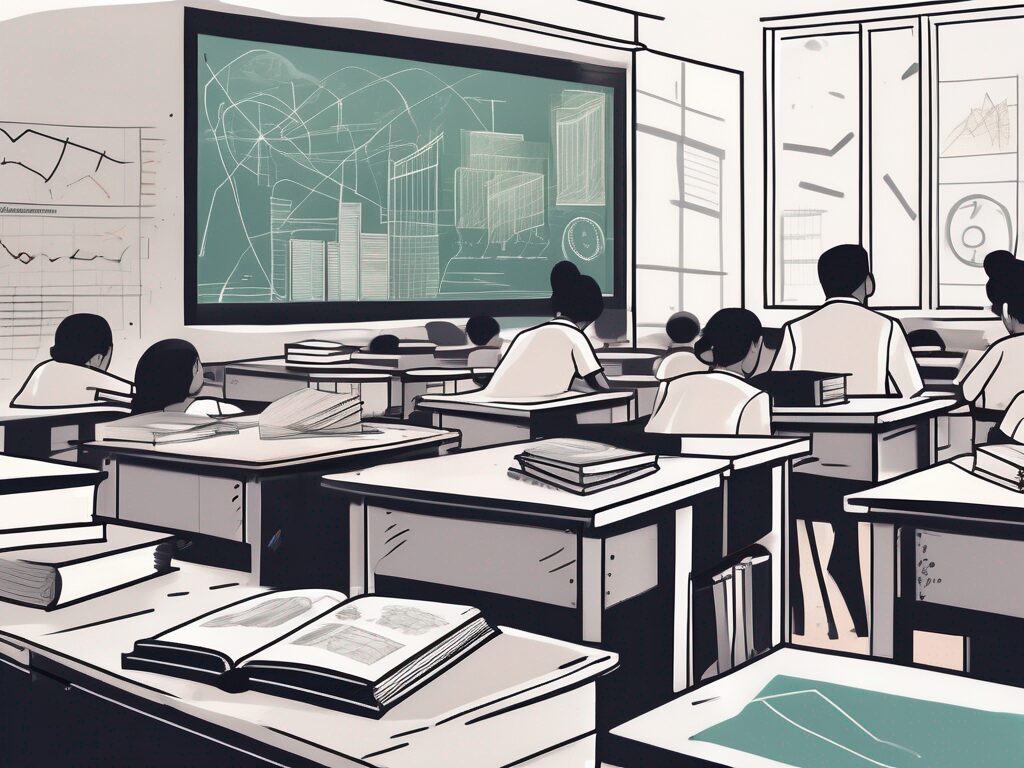The teaching profession is a noble and rewarding one, but it is not without its challenges. This is particularly true for teachers with a Master’s in Education in Malaysia, who face a unique set of obstacles. In this blog post, we delve into the top four challenges that these educators grapple with, and explore potential solutions to mitigate these issues.
1. The Demand for Specialised Knowledge
A. The Pressure to Deliver
Teachers with a Master’s in Education are often expected to possess a higher level of expertise in their respective fields. This expectation can create a significant amount of pressure, as these educators are tasked with delivering specialised knowledge to their students. The challenge here is to balance the depth of content with the ability of the students to comprehend and apply this knowledge.
One potential solution to this issue is to adopt a more flexible teaching approach. This could involve adjusting the pace of lessons to match the students’ learning capabilities, and incorporating a variety of teaching methods to cater to different learning styles.
B. Keeping Up with Current Trends
Another aspect of this challenge is the need to stay updated with the latest trends and developments in their field. This can be particularly demanding, given the rapid pace of change in today’s world. Teachers must constantly update their knowledge and skills to ensure they are providing their students with the most relevant and up-to-date information.
Continual professional development is key to overcoming this challenge. This could involve attending workshops, seminars, and conferences, or even pursuing further studies. Additionally, joining professional networks can provide opportunities for knowledge exchange and collaboration with other educators.
2. The Challenge of Classroom Management
A. Managing Diverse Learning Needs
Classroom management is another major challenge for teachers with a Master’s in Education in Malaysia. With classrooms becoming increasingly diverse, teachers are faced with the task of managing a wide range of learning needs and abilities.
One way to address this issue is through differentiated instruction. This involves tailoring teaching methods and materials to meet the unique needs of each student. It may require more planning and preparation, but the payoff is a more inclusive and effective learning environment.
B. Maintaining Discipline
Maintaining discipline in the classroom is another aspect of classroom management that can be challenging. This involves setting clear expectations, establishing rules, and enforcing them consistently.
Effective communication is key in this regard. Teachers should communicate their expectations clearly and consistently, and provide constructive feedback to guide students’ behaviour. Additionally, fostering a positive classroom culture can help to minimise disciplinary issues.
3. The Struggle with Work-Life Balance
A. The Workload
Teachers with a Master’s in Education often have additional responsibilities, such as research or administrative duties, on top of their teaching load. This can lead to long working hours and a struggle to maintain a healthy work-life balance.
Time management and delegation are crucial in managing this challenge. Teachers can prioritise tasks, delegate where possible, and make use of technology to streamline administrative tasks. Additionally, it’s important to set boundaries and allocate time for rest and relaxation.
B. The Emotional Toll
The teaching profession can also take an emotional toll, as teachers often invest a great deal of emotional energy into their work. This can lead to stress and burnout if not managed properly.
Self-care strategies, such as regular exercise, a healthy diet, and adequate sleep, can help to manage stress levels. Additionally, seeking support from colleagues, friends, and family can provide a much-needed emotional outlet.
4. The Need for Recognition and Support
A. Recognition of Expertise
Despite their advanced qualifications, teachers with a Master’s in Education may not always receive the recognition they deserve. This can be demotivating and may impact their job satisfaction and performance.
Recognition can come in many forms, from verbal praise to promotions and salary increments. Schools and educational institutions can play a crucial role in acknowledging and rewarding the expertise and contributions of these educators.
B. Support from Administration
Support from school administration is another crucial factor. Teachers need to feel supported in their roles, whether it’s through resources, professional development opportunities, or a supportive work environment.
Open communication between teachers and administration can help to identify areas where support is needed. Additionally, fostering a collaborative and supportive work culture can go a long way in addressing this challenge.
In conclusion, while teachers with a Master’s in Education in Malaysia face a unique set of challenges, there are strategies and solutions available to help manage these issues. By recognising and addressing these challenges, we can better support these educators in their important work of shaping the minds of the future.
Enhance Your Teaching Career with The IQTS at UWE
Understanding the challenges faced by teachers with a Master’s in Education in Malaysia, The IQTS at UWE presents the International Qualified Teacher Status (iQTS) Programme, specifically designed to support your professional development and career progression. Overcome the barriers of strict qualification requirements, connect with a global network of educators, and gain a deep understanding of international curricula. With our flexible online study options, you can balance your career advancement seamlessly with your current work commitments. Don’t let isolation or stagnation hold you back. Make Your Next Step towards a more fulfilling teaching journey with iQTS, and join the ranks of educators who are 65% more adaptable in the global education landscape.

